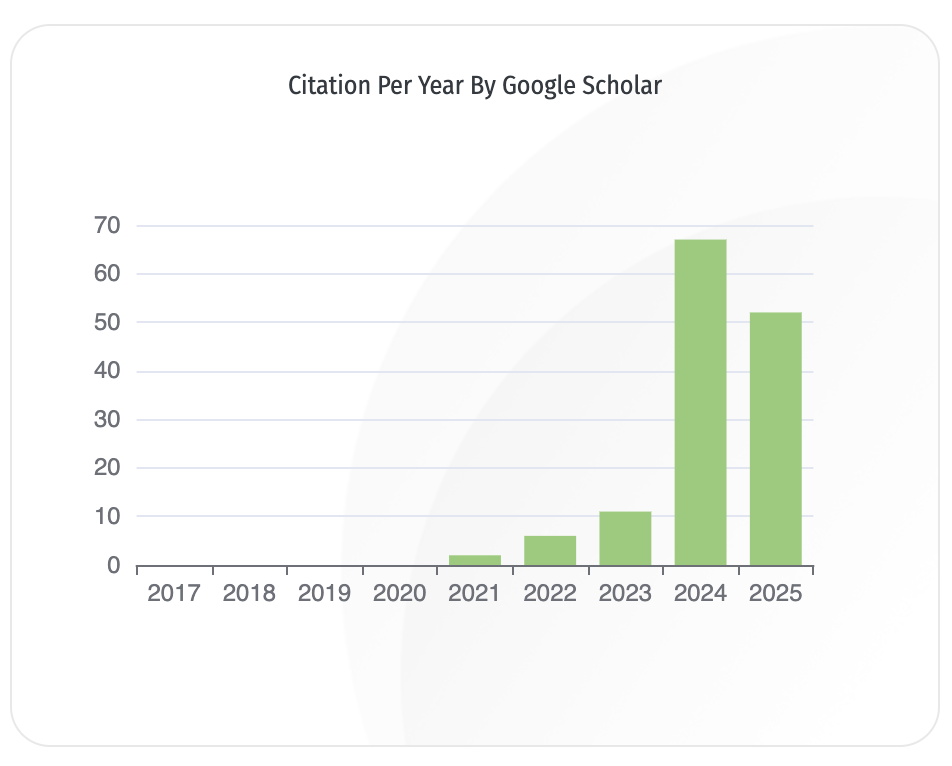Performance-based assessment for elementary school students' fundamental motor skills in balance, locomotor, and manipulative movements
DOI:
https://doi.org/10.26740/bimaloka.v5i2.39985Keywords:
Performance assessment, motor skills, balance, locomotor movement, manipulative movementAbstract
Highlighting the importance of fundamental motor skills encompassing balance, locomotor, and manipulative abilities in the physical development of elementary school children. This study aims to ascertain and provide a better understanding of holistic fundamental motor skills, aiding in identifying children needing continuous intervention. This quantitative descriptive study employs a cross-sectional approach involving 310 respondents of elementary school students aged 7 to 9 years old. The research instrument comprises an assessment rubric with performance observations encompassing eleven types of fundamental motor skills. Ideal mean formula and ideal standard deviation are utilized to analyze data regarding the proficiency levels of each motor skill category. Additionally, an Independent Sample t-test is employed to ascertain the data differences among elementary school students based on gender. The research findings indicate that the elementary school students' fundamental motor skills have an average performance assessment mean of 32.14 (36.12%), with the majority falling into the "good" category. The average performance score of male students is higher than that of female students, with a mean of 30.32 and a standard deviation of 3.590, while the average performance score of female students is 28.48, with a standard deviation of 3.208. They explain the variation in motor skills among elementary school students aged 7 to 9. Most students exhibit proficient skills, although some fall into the unsatisfactory motor skill category. On average, male students demonstrate higher motor skills compared to female students.
References
Chen, W., Mason, S., Hammond-Bennett, A., & Zalmout, S. (2016). Manipulative skill competency and health-related physical fitness in elementary school students. Journal of Sport and Health Science, 5(4), 491–499. https://doi.org/10.1016/j.jshs.2015.03.007
Cosma, G., Rusu, L., Ilinca, I., & Nanu, C. (2016). Improving the Pupils’ Balance Through Rhythmic and Movement Games. International Congress of Physical Education, Sports and Kinetotherapy Improving, 320–325. https://doi.org/10.15405/epsbs.2016.06.44
Dewi, R., & Verawati, I. (2022). The Effect of Manipulative Games to Improve Fundamental Motor Skills in Elementary School Students. International Journal of Education in Mathematics, Science and Technology, 10(1), 24–37. https://doi.org/10.46328/ijemst.2163
Duncan, M. J., Hames, T., & Eyre, E. L. J. (2019). Sequencing Effects of Object Control and Locomotor Skill During Integrated Neuromuscular Training in 6- To 7-Year-Old Children. In Journal of Strength and Conditioning Research (Vol. 33, Issue 8). https://doi.org/10.1519/JSC.0000000000002484
Escolano-Pérez, E., Sánchez-López, C. R., & Herrero-Nivela, M. L. (2021). Early Environmental and Biological Influences on Preschool Motor Skills: Implications for Early Childhood Care and Education. Frontiers in Psychology, 12(August), 1–18. https://doi.org/10.3389/fpsyg.2021.725832
Haris, F., Alnedral, Taufan, J., Aulia, F., & Gusril. (2023). The effect of Motor Coordination Learning (MCL) based on a combination of e-book and QR-Code media with sign language to improve Basic Movement Skill (BMS) in deaf children: An inclusion education research. Journal of Physical Education and Sport, 23(12), 3349–3355. https://doi.org/10.7752/jpes.2023.12383
Junior, A. H., Fernandes, C. T., Cardoso, F. B., Rosa, H. J. G., & Maciel, C. M. L. A. (2020). A influência entre os domínios cognitivo e motor em estudantes de 07 a 09 anos. Research, Society and Development, 9(4), e177942424. https://doi.org/10.33448/rsd-v9i4.2424
Kim, J. C., & Lim, J. H. (2018). The effects of coordinative locomotor training on coordination and gait in chronic stroke patients: A randomized controlled pilot trial. Journal of Exercise Rehabilitation, 14(6), 1010–1016. https://doi.org/10.12965/jer.1836386.193
Korbecki, M., Wawrzyniak, S., & Rokita, A. (2017). Fundamental movement skills of six- to seven-year-old children in the first grade of elementary school: A pilot study. Baltic Journal of Health and Physical Activity, 2017(4), 22–31. https://doi.org/10.29359/bjhpa.09.4.02
Krupnik, V., Nietzold, I., Bartsch, B., & Rassler, B. (2015). The effect of motor–respiratory coordination on the precision of tracking movements: influence of attention, task complexity and training. European Journal of Applied Physiology, 115(12), 2543–2556. https://doi.org/10.1007/s00421-015-3250-5
Lengkana, A. S., Rahman, A. A., Alif, M. N., Mulya, G., Priana, A., & Hermawan, D. B. (2020). Static and dynamic balance learning in primary school students. International Journal of Human Movement and Sports Sciences, 8(6), 469–476. https://doi.org/10.13189/saj.2020.080620
Li, H., & Ma, L. (2020). The Relationship Of Physical Activity And Motor Ability Development In Children Aged 7-8 Years. Medicine & Science in Sports & Exercise, 52(7S), 280–280. https://doi.org/10.1249/01.mss.0000676620.38757.f4
Li, Y., Song, H., Chang, J., & Yang, M. (2019). The Effect of Extracurricular Coordinated Physical Education on the Development of Basic Motor Skills of Children aged 7-9 Years Old. Medicine & Science in Sports & Exercise, 51(6S), 512–512. https://doi.org/10.1249/01.mss.0000562038.20597.2b
Oktarifaldi, Nopembri, S., Yudanto, & Bin Shahril, M. I. (2024). The fundamental motor skills and motor coordination performance of children in West Sumatera Province, Indonesia. Pedagogy of Physical Culture and Sports, 28(1), 4–15. https://doi.org/10.15561/26649837.2024.0101
Reyes, A. C., Chaves, R., Baxter-Jones, A. D. G., Vasconcelos, O., Barnett, L. M., Tani, G., Hedeker, D., & Maia, J. (2019). Modelling the dynamics of children’s gross motor coordination. Journal of Sports Sciences, 37(19), 2243–2252. https://doi.org/10.1080/02640414.2019.1626570
Rodríguez-Negro, J., Falese, L., & Yanci, J. (2019). Effects of different balance interventions for primary school students. Journal of Educational Research, 112(6), 656–662. https://doi.org/10.1080/00220671.2019.1669522
Rokhfard, M., Sajjadian, I., & Ghamerani, A. (2023). Developing a Process-Based Movement Intervention Program and Evaluating Its Effects on the Fundamental Motor Skills and School Readiness of Pre-School Boys. The Scientific Journal of Rehabilitation Medicine, 12(2), 202–217. https://doi.org/10.32598/sjrm.12.2.1
Rudd, J. R., Barnett, L. M., Butson, M. L., Farrow, D., Berry, J., & Polman, R. C. J. (2015). Fundamental movement skills are more than run, throw and catch: The role of stability skills. PLoS ONE, 10(10), 1–15. https://doi.org/10.1371/journal.pone.0140224
Sember, V., Grošelj, J., & Pajek, M. (2020). Balance tests in pre-adolescent children: Retest reliability, construct validity, and relative ability. International Journal of Environmental Research and Public Health, 17(15), 1–13. https://doi.org/10.3390/ijerph17155474
Serrien, D. J., & O’Regan, L. (2021). The development of motor planning strategies in children. European Journal of Developmental Psychology, 18(1), 1–17. https://doi.org/10.1080/17405629.2020.1736029
Shams, A. (2018). Relationship Between Age, Gender And Body Mass Index With Performance of Fundamental Motor Skills Among Children Aged 7-10 Years. Nian Journal of Health Education and Health Promotion, 06(01), 39–52. https://doi.org/10.30699/acadpub.ijhehp.6.1.39
Strooband, K. F. B., Rosnay, M. De, Okely, A. D., & Veldman, S. L. C. (2020). Systematic Review and Meta-Analyses: Motor Skill Interventions to Improve Fine Motor Development in Children Aged Birth to 6 Years. Journal of Developmental and Behavioral Pediatrics, 41(4), 319–331. https://doi.org/10.1097/DBP.0000000000000779
Telford, R. M., Olive, L. S., Keegan, R. J., Keegan, S., Barnett, L. M., & Telford, R. D. (2021). Student outcomes of the physical education and physical literacy (PEPL) approach: a pragmatic cluster randomised controlled trial of a multicomponent intervention to improve physical literacy in primary schools. Physical Education and Sport Pedagogy, 26(1), 97–110. https://doi.org/10.1080/17408989.2020.1799967
Verbecque, E., Johnson, C., Rameckers, E., Thijs, A., van der Veer, I., Meyns, P., Smits-Engelsman, B., & Klingels, K. (2021). Balance control in individuals with developmental coordination disorder: A systematic review and meta-analysis. Gait and Posture, 83, 268–279. https://doi.org/10.1016/j.gaitpost.2020.10.009
Wibowo, C., Dese, D. C., & Nopiyanto, Y. E. (2024). Developing a precise gross motor skills assessment instrument for elementary school students (ages 7-9). Pedagogy of Physical Culture and Sports, 28(2), 84–92. https://doi.org/10.15561/26649837.2024.0201
Xing, D., Liu, F., & Xu, D. (2020). Coordinated Motion Planning of Independent Manipulators in Precision Manipulation. IEEE Transactions on Industrial Informatics, 16(11), 6933–6942. https://doi.org/10.1109/TII.2020.2973716
Yasue, M., Ueda, T., Fukuda, T., Adachi, T., & Ozaki, Y. (2019). The Difference Between Movement and Self-Recognition in Children Performing the Standing Long Jump. Global Pediatric Health, 6(9), 1–9. https://doi.org/10.1177/2333794X19890767
Zheng, Y., Ye, W., Korivi, M., Liu, Y., & Hong, F. (2022). Gender Differences in Fundamental Motor Skills Proficiency in Children Aged 3–6 Years: A Systematic Review and Meta‐Analysis. International Journal of Environmental Research and Public Health, 19(14). https://doi.org/10.3390/ijerph19148318
Zimmer, C., Staples, K. L., & Harvey, W. J. (2016). Fundamental Movement Skills in Children With and Without Movement Difficulties. Journal of Motor Learning and Development, 4(2), 324–343. https://doi.org/10.1123/jmld.2016-0001
Downloads
Published
How to Cite
Issue
Section
License
Copyright (c) 2025 Cahyo Wibowo, Kukuh Pambuka Putra, Yahya Eko Nopiyanto, Dennys Christovel Dese, Aguch Vergianata Pradibya

This work is licensed under a Creative Commons Attribution-NonCommercial-ShareAlike 4.0 International License.
 Abstract views: 131
,
Abstract views: 131
, PDF Downloads: 106
,
PDF Downloads: 106
, PDF Downloads: 32
PDF Downloads: 32






